Five years ago, EqualHealth launched the Campaign Against Racism (CAR) to dismantle structural racism and its effects on health around the world by supporting local actions, efforts, and networks that aim to improve the health and lives of those most affected by racism. CAR is a network of chapters that declare a strategic goal for their direct communities and commit to be a part of a collective campaign. Chapters engage together, while sharing success stories and challenges, participating in community organizing training, and building relationships with other organizers around the world. Recently, the Healing ARC Newsletter talked with some of the key organizers about their accomplishments and what they see in the future for the organization. Participating were:
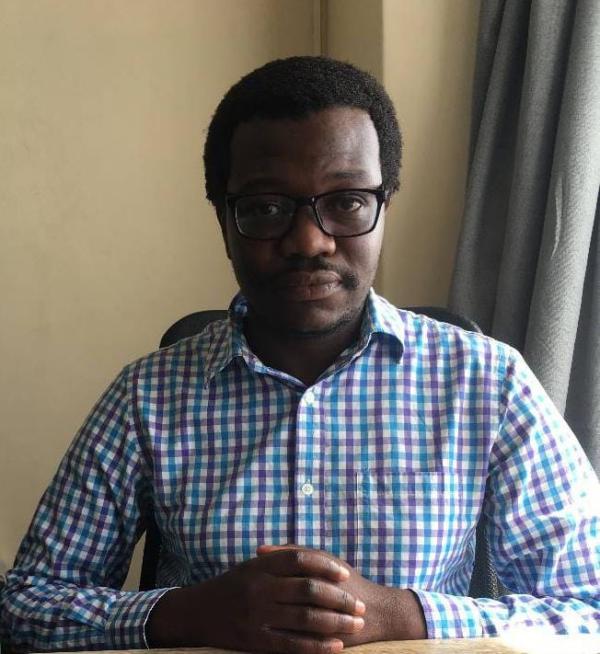
Tianashe Goronga
Tianashe Goronga is a medical doctor from Zimbabwe who specializes in Public Health. He is one of the Global Coordinators for CAR and an alumnus of EqualHealth’s social medicine courses.
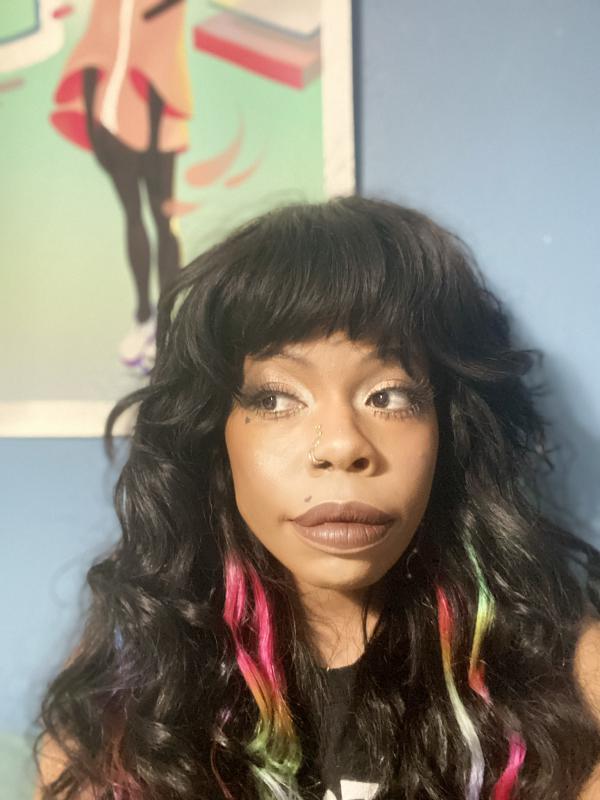
Courtni Alexis Andrews
Is a health practitioner and behavioral scientist in Atlanta. Working with academic institutions, non-profits, and governance, Courtni is a thinker at her core. She often bridges gaps between visions and actions for better health systems and a future that centers nature, organisms and technology in harmony and alignment in solidarity with communities both locally and beyond. Andrews participated in the interview in her personal capacity. The views expressed are her own and do not represent the views of the Centers of Disease Control and Prevention or the United States government.
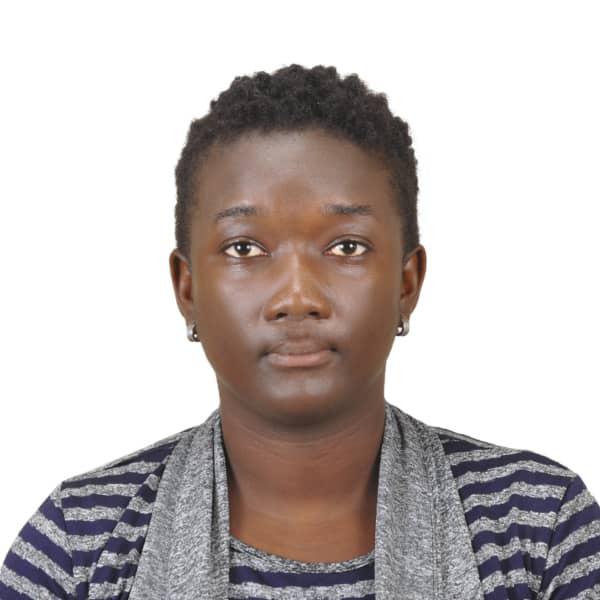
Nabirye Peruth
Is a CAR organizer who is an artist and digital visual communicator in health. She leads the cancel the debt subgroup that focuses on improving access to vaccines, therapeutics and diagnostics in Uganda and Zambia communities. She uses artistic skills and oral poetry to address social, economic and political challenges embedded in systems and structures of governance at the global and local level.
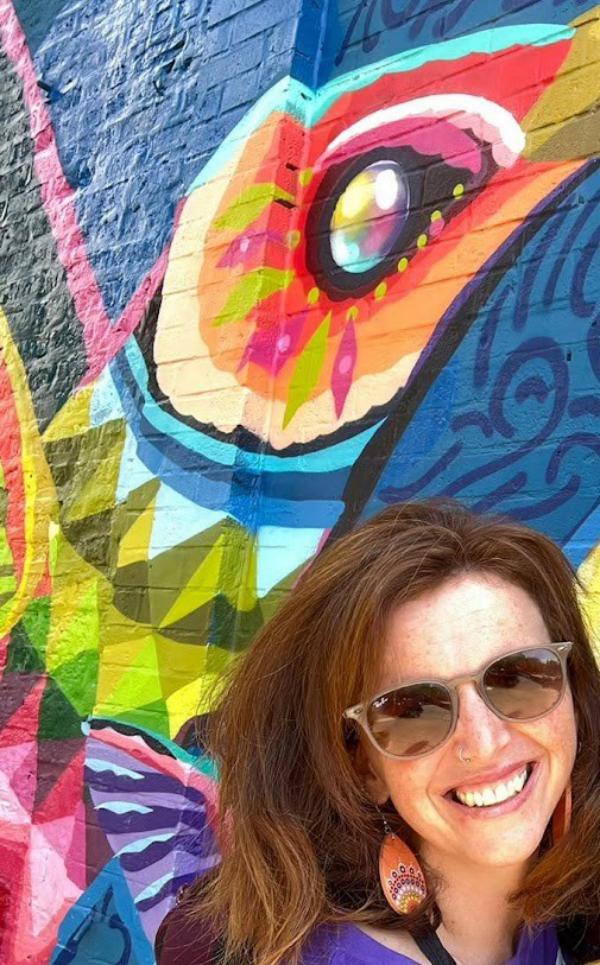
Anne Marie Collins
Is an experienced organizer with a focus on advocacy and influencing/reimagining public policy. Based in Spain, she has worked at the intersection of public health and community organizing internationally from Colombia to Liberia and in harm reduction with the EU.
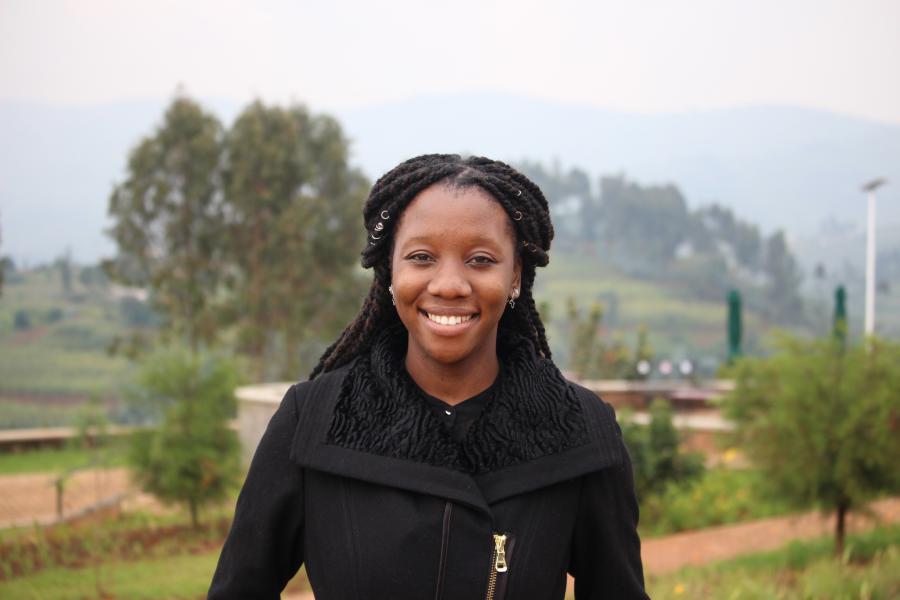
Yeukai Chikwenhere
Is an organizer who is a pharmacist and global health researcher. She is co-founder of the Centre For Health Equity Zimbabwe, and is a community organizer for CAR.
Why Was CAR Started?
Tinashe: Equal Health´s Campaign Against Racism was co-founded by Michelle Morse and Camara Jones with support from myself and Tanvi Avasthi in 2018. Michelle was an existing partner in the global coalition of the social medicine consortium and decided to use this platform to organize to dismantle structural racism and racial capitalism. Now across 14 Chapters around the world, CAR is organizing members to uncover the historical connections between racism and capitalism to radically imagine a future in which the sociocultural, political, and economic systems work towards health equity, rather than against it. I remember also Camara Jones presentation about racism and the different levels of racism which formed part of the path to move to a global campaign. Camara Jones made a presentation in 2017 about racism and the different levels of racism. During that presentation at a social medicine consortium conference, people realized that racism impacts countries around the world and not just the United States of America. But it was a global phenomenon. And at that time, there was a National Campaign Against Racism going on. And the campaign, the Global Campaign Against Racism, was then started as a global component of that national effort to engage a global conversation about the intersection of racism and health equity. We want to bring racism prominently into the health space as a structural determinant of health. And we also wanted to highlight the different manifestations of racism in a different context, in a global context, considering the unique historical context of racism in every country or region. We thought it was necessary to uplift those conversations and to build solidarity, globally, in order to dismantle the racism affecting health globally.
What Were Your Initial Goals And Objectives When You Started?
Anne Marie: Our initial goals, the main goals, remain. We want to dismantle structural racism and its impact on health globally. There are more specific goals at the chapter level. We have 14 chapters, but we always have that one principal goal. The local goals address how structural racism operates in specific locations. And vary from country to country. In Spain, we are more focused on the migration industrial complex. In Atlanta, we are focused on the prison industrial complex. We understand that this is a generational struggle. This is not something that is going to be over in our lifetime. And I think that the campaign, apart from having this goal of dismantling structural racism, understands that we are building an infrastructure that will eliminate the racism that engulfs systems in countries all over the globe, and reduces the quality of health, particularly for people of color.
What Have Been Some The Organization’s Accomplishments Towards Jettisoning Racism?
Yeukai: In terms of accomplishments over the first five years, we have established 14 operating chapters in nine countries. That is a big accomplishment. Each chapter establishes working groups that design strategic goals and tactics for their communities. Having those chapters setting up strategy goals and tactics are accomplishments. For instance, the Uganda and Zimbabwe chapters work together to address the remnants of the colonial legacies in those countries. Those collaborations and sharing of stories and experiences is a big accomplishment for us. One of our CAR organizers from Uganda was quoted in an article in the Guardian about inequities with COVID vaccines because of racism rooted in slavery and colonialism. Having our work cited on international platforms helps amplify what we are striving to accomplish. We have also been on the airwaves talking about racism, colonialism, feminism, and other issues. These are all accomplishments because each opportunity shines a spotlight on the need to eliminate racism. We also partnered with Harvard in a webinar on global perspectives of anti-racism. Our organizers and community members actively participate in sharing their perspectives on anti-racism work. Lastly, our Vanderbilt Chapter, led a powerful organizing strategy to end the use of race as a variable in the calculation of eGFR (equations for calculating estimated glomerular filtration rate) at Vanderbilt University Medical Center and in 2020 won, with race now eliminated as a variable.
What Are Some Specific Strategic Actions Over The Last Five Years?
Anne Marie: I can talk about Spain. The country declared racism a public health crisis at the onset of the COVID pandemic. This was the first place in Europe that declared racism a public health crisis. It was a huge achievement led by migrant collectives. It was a multiracial platform and amounted to communities taking back spaces of power. And in that declaration, we had demands linked to de-colonizing political institutions and dismantling the current migration industrial complex. We are still struggling for funding, which will be critical to establishing material change. That is the next frontier. Another achievement has been that we hosted our first de-colonialized feminism school in November. That created our own community space, again, led by migrant collectives from Spain to across the Americas. And we will start addressing the negative narratives that are embedded in the White supremacist policies that impact the daily conditions in our communities, especially migrant communities here in Spain.
Tinashe: Collaborations have expanded as more institutions become aware of the work that CAR is doing and see the need to join in these conversations. When we started the campaign, we sought to expand the intersectionality between racism, and health equity on a global level. Take the Harvard webinar that we cohosted. It was a platform where these conversations were not among us but reached academic spaces and broader audiences. That is so important. Then on the academic side, members of the Campaign Against Racism are contributing to papers published in major journals that discuss some of the critical issues about structural racism and its impact on health. Many papers were published when the pandemic started, highlighting the continued impact of structural racism on health. These papers serve as a foundation for academic work and conversations on the impact of structural racism. For CAR members, being in those spaces and contributing to the body of knowledge that’s trying to eliminate structural racism globally, is very powerful.
Courtni: It was very significant when CAR collaborated with others, such as Southern Kindred Healing Justice Collective, to shut down the Irwin County Detention Center in Ocilla, Ga. While there is a legacy of atrocities throughout history, at Irwin, there were unwanted procedures on detained immigrant women and people that jeopardize their ability to have children or health generally. We stood in solidarity with a nurse named Don Wooten, who blew the whistle on what was going on. Because of that campaign, a group of us wrote a statement to spread the word and build power with the communities already mobilizing about what was going on. We got 800 people throughout the world to sign a statement, denouncing the actions, and started building a powerful letter to support the coalition to shut down migrant detention centers. This conversation also included conversations about conditions at prisons. Taken together, this shows that there is a real underground network of health practitioners, community organizers and activists who have and can come together during the pandemic in solidarity as a community to say when you harm one of us, you harm all of us. It has been powerful to see.
Yeukai: Our organizing space recently adopted a language justice framework, which is based on the understanding that language has been used as a tool to oppress, and among other things, to marginalize communities. We have established this framework to enable our communities to express themselves in the most influential ways. We support interpretation and translation as well as, making sure we are not English dominant and give space to other languages and other community members. That is a big achievement for us.
What Will It Take To Eliminate Racism?
Tinashe: We have to realize that ending racism is not something that we can do alone; it’s something that really needs a collective effort globally. That’s the motivation of the global nature of our work. We want to put racism in a different context. We focus on the intersectional approach, and bringing the intersectionality that comes with different forms of oppression. We are building solidarity to fight it. I have mentioned it is very important that we bring to the fight the impact of racism on health because a healthy population is every society’s core, and it reflects on the status of that society. But at the same time, our economic systems, our social systems and structures are all influenced by racism. Thus, we need to get everyone from all these systems involved in the conversation. The solidarity that we build is a very important element for us towards achieving our goal of eliminating racism. Most importantly, one of the things that we have also learned from our partners and other movements is to start actually envisioning where we want to go, re-imagining a future that we want to see without racism. We have learned from different movements. That has been powerful in helping us shape a clear picture of what we want the world to look like without racism. It is what motivates us and give us something to work towards. It is important for us to have these conversations in different countries in different contexts, answering questions like ‘What would the world look like? ‘ It helps us work towards creating new systems and structures that are not based on structural racism and racial capitalism.
Anne Marie: When I think about this question. I think about our beloved mentor, Dr. Camera Jones. She eloquently frames the denial of the history of upholding structural racism. Globally, we are recovering and confronting that history. We are especially doing that in this campaign. We are constantly providing an education, and consciousness, of what took place and how countries have arrived at this moment that we are in right now. It starts with a historical context of how we got here.
To Make Progress, Do Those Who Sustain Structural Racism Have to First Acknowledge that Racism Exists Before Progress Can Be Made?
Courtni: Often with these types of questions, I think about what Malcolm X said about when you replace I with we, illness becomes wellness. One part of movement building is recognizing the historical context and seeing that these things are cyclical. Look at what happened after the 1918 influenza pandemic. Many have said, but after pandemics, there is a rise in eugenics and fascism. We are seeing some of that repeated today after the COVID pandemic. That’s been a historical precedent. There are communities that have been harmed multiple times – indigenous populations, Black and Brown communities, disabled communities, and more. In regard to those who have been oppressed, I don’t think it is really for them to acknowledge the harm because these are people who don’t have the lived experience and will never truly understand how it feels to watch family members go through violence, harm, and oppression. The people who do have positions of power, who historically have been in positions where they have wealth, land, resources, food, they need to understand the impact of structural racism and other isms. But these are sensitive conversations. It can placate people and not actually move the needle forward. Racial healing should be in the conversation because there is a mental health piece that is critical here as generational harm, health and healing justice co-exist together. The psychology of constantly being oppressed, constantly having to coddle people and constantly having to prove your humanity to somebody is dangerous. It’s a dangerous conversation, but a much needed one.
Anne Marie: I will answer as the white person in this space. We had this discussion when organizing the de-colonialized feminism school. There was an attempt to bring in feminist organizations that didn’t have a de-colonialized lens. It was at the point where we were building connections with local people from community organizations who had been around for a long time. For White people there is always a discussion about your role in the movement. For five years, I’ve been a White person in a global campaign against racism. We are dismantling White supremacy, yet it is White people who benefit from the racism. I like to name the damage that White privilege has done. We use narratives, and unconscious bias training, to put an individual lens on this struggle. And honestly, I see the capitalism lens, too. I put my body in the struggle to shift resources and shift power. In Spain, we had examples of White people protecting young migrants by letting them in their homes during police raids. There were young migrants during the pandemic living in houses that belonged to banks. I don’t call it occupied housing; it was empty houses that belonged to banks. And it was White people who put their bodies on the line for this to happen. It should be White people, right? Putting our bodies on the line. It is White people that displaced the migrant communities in the first place.
Tinashe: In Zimbabwe, there was a very controversial land reform program that was meant to address land ownership and land distribution. And in South Africa there are still historic issues around land ownership where White privilege persists. When the conversation focuses on the individuals, they feel attacked and tend to resist. But if there is an appreciation of the broader issues, like the power dynamics, it really helps. That appreciation is very important because some of the systems put in place to address structural racism have perpetuated it. A lot of people talk about democracy and constitutionalism. In some countries, the constitutions cite ‘equality for all’, which on paper is great because you are recognizing freedoms for everyone, but it doesn’t acknowledge the historic inequities. It just assumes that when the constitutions passed, everyone from that day forward is equal as if it magically erases the inequalities and assumes everyone is now equal and starting from the same position. But actually those with privilege and power continue having their privilege and power and that privilege and power is actually protected. It makes it harder to have authentic conversations about dismantling White privilege. Each country has a different context. Look at Australia, South Africa, Zimbabwe. But in all these countries, racism persists, but it manifests in different ways because it has different roots in each location. We have institutions like the United Nations, which are supposed to address some of these issues, but again, those in control are people who protect those with the power and the privilege. The important conversation that must happen is probably about awareness of the power and the privilege, and the willingness to create spaces for those disadvantaged by the privileged to center their voices and lead efforts to oppose it.
What Do You Envision For The Next Five Years? What Are Some Strategic Actions That You Hope To Engage In?
Tinashe: When we started the campaign, we thought it was going to be one year initially, but now it has grown, and we are excited about the growth. With the growth, there is also increased need for resources. In the next five years, we must reflect in terms of how do we turn the growth that we are experiencing into meaningful change? How do we support and sustain that growth, because that’s very important. We are having meaningful conversations about opposing rising right-wing movements around the globe. There is more work to be done and we need to think about how we can continue de-colonizing. And another topic we must bring into the conversation is climate justice; this is a growing problem. We need to emphasize how racism and racial capitalism contributes to climate change. These same movements and institutions that we have been organizing against are the same ones contributing to the climate issues that we face. In the next five years, our chapters need to grow and start transforming various communities within their countries, and within neighboring countries. What I hope to see is both local growth and an increase in global solidarity and partnerships, so resistance continues rising.
Anne Marie: We are very aligned with the people. We have a powerful community, and our challenge is to deepen our relationships every single day. We want to connect the struggles and make sure that people are feeling connected to the community. We have to understand when they are feeling disconnected, and be accountable for that disconnect. We need to be ready for the moments when our incremental pressure finally leads to institutional policy changes.
Nabirye: Our chapter is going to navigate more into reflecting on how history influences our health, and will continue doing so in the future. We intend to work with the universities around health and looking into the scientific approach to diseases. As we move through this journey, there will be many opportunities to support different communities, and even the next generation.
Courtni: With eugenics and fascism, the solutions are building power and acknowledging that intersections are vital and important. I look forward to building power with disabled, and Black and Brown communities, and formally incarcerated people – people from all walks of life without a savior complex. My vision is for people to have access to care, safety and security wherever they are. I also have a vision of people who represent those communities being able to put truth to power, whether that is with public policy or with new technologies. Even with union busting in the United States, people are taking on their employers calling them out. That shows me the future will be complicated and messy, but I think, like many others, that white supremacy and capitalism are on their last stand. The momentum is there. In five years, the world is going to look very different. It already looks different, such as opportunities for clean air and building better communities that are based more on values that focus on our humanity and not on what folks have or don’t have. I’m excited even though I am wary of what is to come.
Yeukai: I envision growth and expansion of resources for the Campaign Against Racism, and also in terms of growth from the local to the global. I see some of the tactics and the frameworks that we are adopting trickling down throughout our chapters. For instance, like language justice. It will be great to see chapters incorporate that in their work, better understanding of different tribes and languages.
Where Has The Organization Grown Most Over The Last Five Years?
Tinashe: The growth has been mainly in the chapters. I remember struggling with the Uganda chapter in the early days to even have conversations, struggling for many people to understand how structural racism is manifested. Now, so many years down the line, they are one of the most active chapters and are leading in so many spaces. And they’re growing in numbers too, and in how they contribute to the conversation. Our number of chapters is growing. We now have a chapter in India, bringing in a new perspective that we did not have originally.
Anne Marie: It is very important that when we talk about growth that we talk about the evolution of our tactics. I think at the beginning, we were more stuck in a reform mentality, often organizing within the frameworks of institutions. We were not always recognizing how oppression operates to stagnate our movement dreams. Witnessing COVID-19, another pandemic fall along the fault lines of race, gender, ableism, class and other intersections along with a global uprising on Anti-Blackness was a moment of reckoning to be more radical in our demands. They more aggressively go for dismantling, reimagining, and putting declarations on the table. These are like roadmaps in their asking for resources and funding for courageous actions and tactics to change the flawed systems. We are engaging in one of our most courageous actions – hosting a global trial on anti-blackness in the migration industrial complex. We have a proper legal format with witnesses, a jury, and we’ll have a verdict. This is not a tactic we could have done in year one. The trial, which was held on March 1, can be viewed here:
https://www.youtube.com/watch?v=T-x2mwf9fRU
